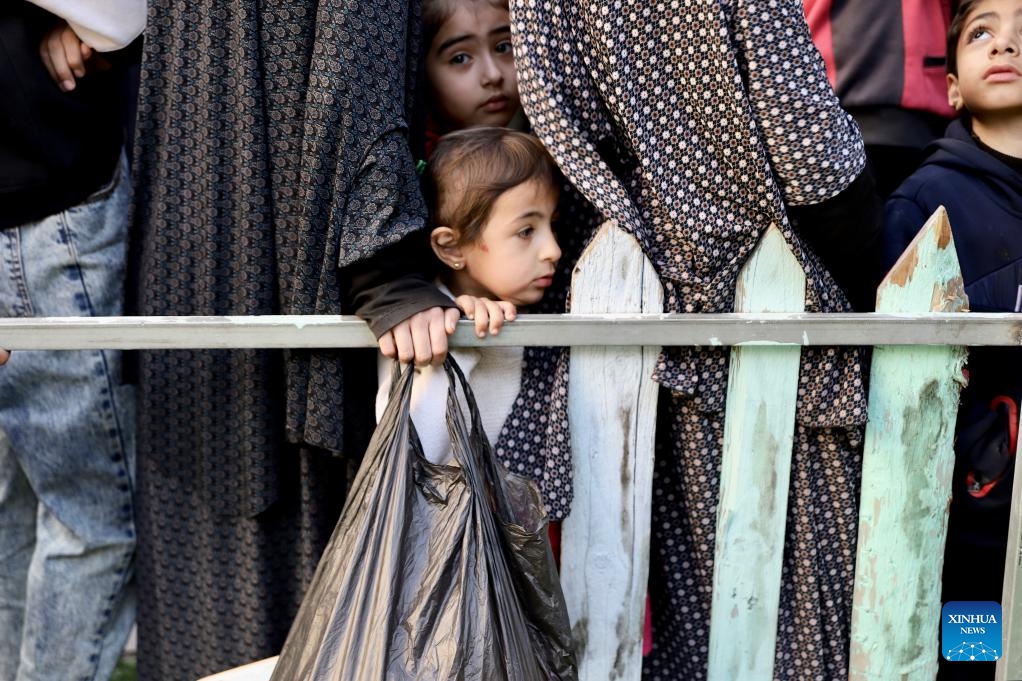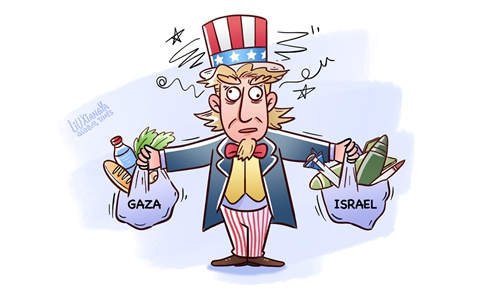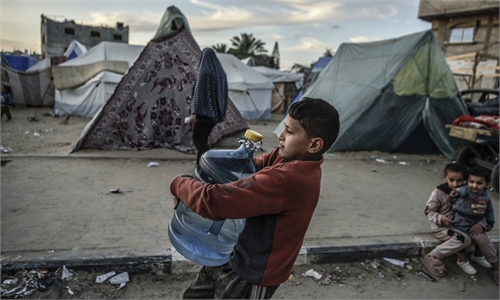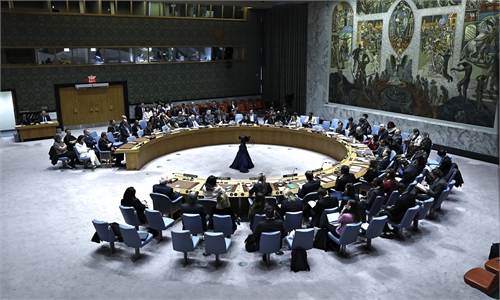New Gaza cease-fire talks ‘more likely to yield results’ due to the practical needs

People wait to receive food relief during Ramadan in Gaza City, on March 13, 2024. The Palestinian death toll due to the ongoing Israeli attacks on the Gaza Strip has climbed to 31,272, reported the Gaza-based Health Ministry on Wednesday.(Photo: Xinhua)
A new round of cease-fire talks between Israel and Hamas is expected to start very soon in Qatar, according to media reports. The possibility of the two sides achieving results is much greater now compared to the previous failed negotiations, experts said, due to the practical needs of both parties.
Israeli Prime Minister Benjamin Netanyahu on Friday confirmed that Israel will send delegates to Qatar, one of the main regional mediators of a diplomatic solution to the raging Gaza conflict, the Xinhua News Agency reported.
On Sunday, Israel's security cabinet and the smaller war cabinet were to meet to "decide on the mandate of the delegation in charge of the negotiations before its departure for Doha," AFP reported, quoting the prime minister's office. The office did not specify the date of the new talks, but they could start as early as Sunday, according to Egyptian officials, quoted by AP.
The last round of talks started before the start of the Muslim holy month of Ramadan on March 11, by which time international mediators had hoped to secure a temporary truce. However, it fell apart as Hamas refused any deal that would not lead to a permanent cease-fire in Gaza, which Israel rejected, AP reported.
In the new round of talks, however, Hamas is ready to show flexibility in negotiations "if Israel adheres to a specified cease-fire deadline" in the Gaza Strip, according to a source in Hamas, Xinhua reported. He said that if positive signals are received with guarantees, it would "bring us closer to reaching an agreement and push the movement to show flexibility in negotiations for the exchange of prisoners."
With increased Hamas flexibility, the likelihood of the two sides reaching a phased cease-fire agreement this time has obviously increased compared to the previous round of negotiations, but there is still a great deal of uncertainty, Zhu Yongbiao, a professor at School of Politics and International Relations of Lanzhou University, told the Global Times on Sunday.
Compared to the last negotiation, Zhu noted that Israel's demands have not changed significantly. "On the Hamas side, although their desire for a comprehensive and long-lasting cease-fire is more urgent and they are under greater pressure, their interim goal has been achieved, which is not allowing Israel to achieve a complete victory in the Gaza Strip," Zhu said.
As time goes on, as pressure on Hamas grows and as the urgency for peace increases, they are much more likely to make concessions, leading to a greater possibility of reaching an agreement, the expert said. However, the extent to which Israel accepts Hamas' flexibility remains to be seen.
Observers noted as both sides have a realistic need and demand for a phased cease-fire, there is a higher possibility of yielding an agreement.
However, the long-term goals of both sides are significantly divergent, so even if an agreement is reached, the likelihood that a conflict will again erupt is very high, Zhu warned.
The Palestinian death toll from the ongoing Israeli attacks on the Gaza Strip has risen to 31,553, Hamas-run Health Ministry said on Saturday, since Israel launched the large-scale offensive in Gaza to retaliate against a Hamas rampage through the southern Israeli border in October 2023.
Meanwhile, the Palestinian Ministry of Foreign Affairs and Expatriates has urged an international humanitarian intervention via a binding resolution in the UN Security Council to compel Israel to halt its attacks in the Gaza Strip, guaranteeing the safety of civilians and the delivery of aid in a sustainable manner, Xinhua reported Saturday.



